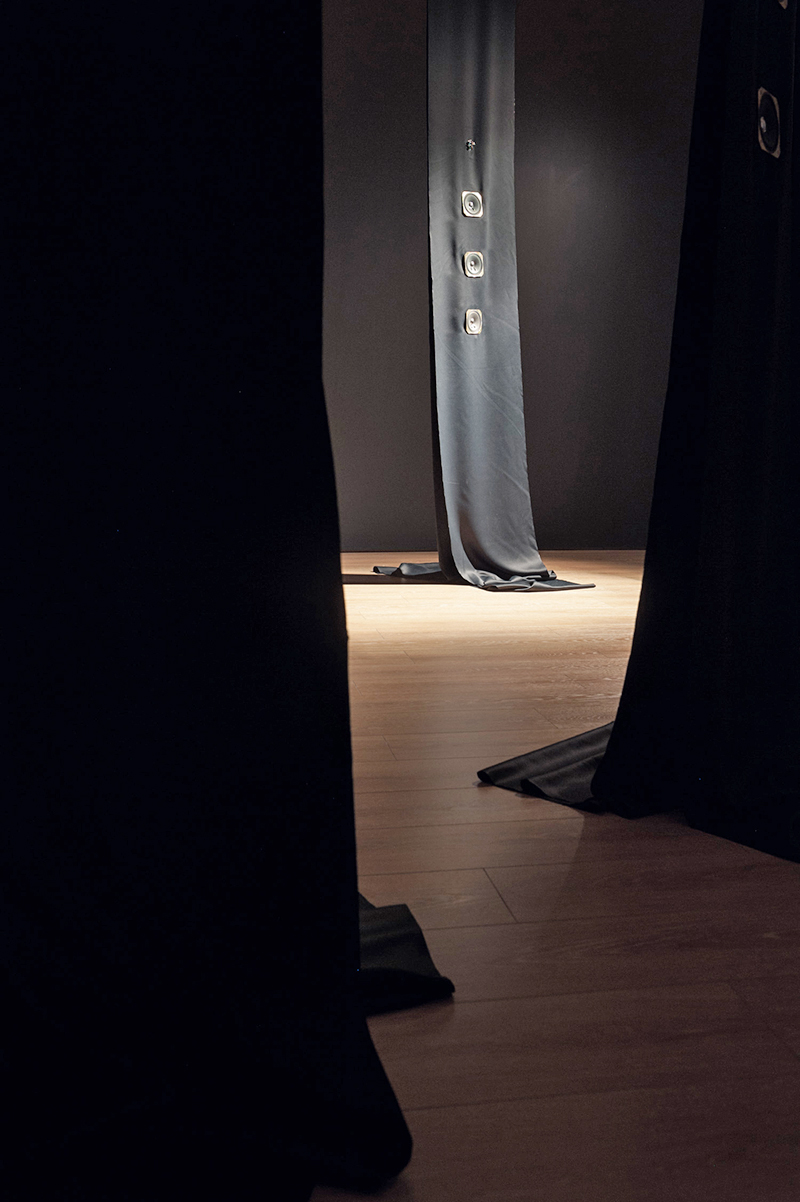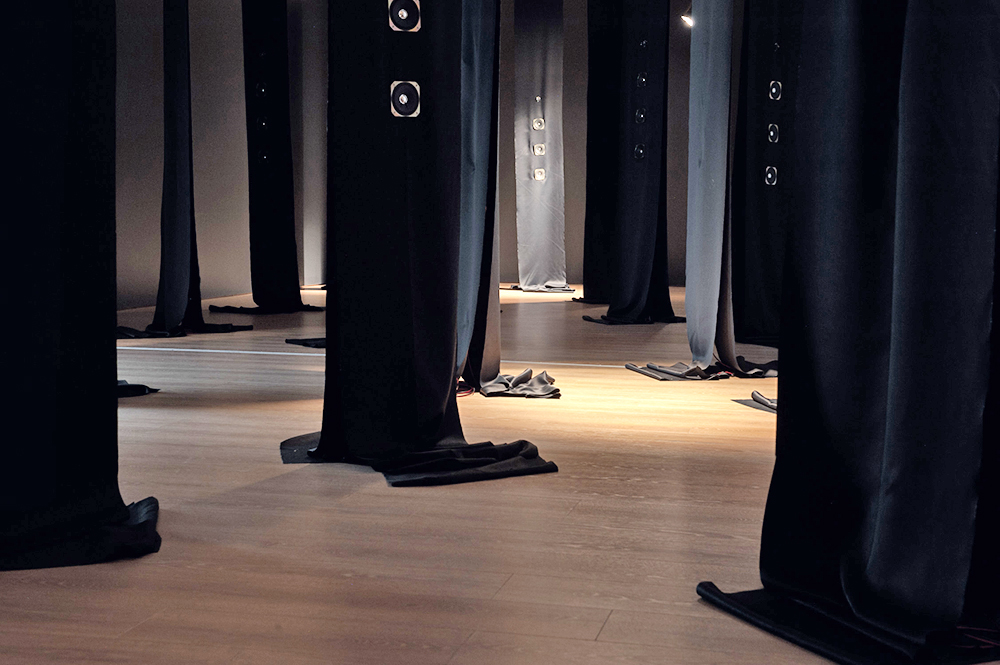Shows
Tintin Wulia’s “Untold Movements”


Indonesian artist Tintin Wulia’s sound installation Untold Movements Act 1: Neitherland, Whitherland, Hitherland (2015), which recently premiered at Sydney’s 4A Centre for Contemporary Asian Art, is chilling in the almost casual way that it immerses the audience in a world of fear, conflict and uncertainty—specifically, the kind that is experienced by refugees worldwide. At the 4A Centre, 32 channels of synchronized audio, with orchestrated human voices speaking in several different languages, are interspersed with the eerie staccato sounds that one associates with short-wave radio frequencies, which fill the darkened gallery space. Loud speakers, along with synchronized flashing lights attached to black drapes that hang from the ceiling, add to the overall sense of disorientation and confusion.
Untold Movements builds on Wulia’s earlier sound work entitled Babel (2013), which interweaves poetry spoken in several different languages to create a miasma of sound that explores global nomadism—especially in relation to that of the Middle East. Here Wulia has taken the process further, spurred on perhaps by the constant scenes of chaos that are shown daily on television of displaced people fleeing war zones, and struggling for freedom as they press against borders. Some refugees are allowed through, while others are refused; some countries open their borders, while others keep them firmly closed.
At the core of Wulia’s practice is a reflection on how global borders determine the movement of refugees, which has become one of the 21st century’s most pressing problems. According to a recent report by the United Nations High Commissioner for Refugees, in 2014, 59.5 million individuals were forcibly displaced worldwide as a result of persecution, conflict or human rights violations. In Untold Movements, the use of texts and poems read by a variety of voices in several languages allows the audience’s imagination to fill in the gaps regarding the meanings of the largely foreign dialogues, and sense the feeling of fear, confusion and displacement that lies beneath the spoken words.

Certain politicians demonize migrants, seeing them not as individuals, but as impersonal groups that threaten the societal stability of the countries they wish to enter. Speaking in July, Prime Minister David Cameron of Britain described the asylum seekers from countries such as Syria, Eritrea and Afghanistan—who are camped in squalid conditions in the French town of Calais, hoping for entry to the United Kingdom—as a “swarm of people who have crossed the Mediterranean.” The Qatar-based international news agency Al Jazeera just this week took the decision to stop referring to such asylum seekers as “migrants” and instead acknowledge them for who they are: refugees.
Experiencing Untold Movements is, as Wulia correctly observes, like being among a group of people speaking in tongues, but without the religious fervor or spectacle. Few of the languages spoken in the work make much sense to the average viewer, unless one is a polyglot, of course. Yet this all adds to the intentionally confusing atmosphere meant to urge contemplation regarding the plight of refugees, which Wulia evokes through her clever oral storytelling.
Globally, the statistics on refugees are chilling; everyday an estimated 42,500 people leave their home to escape conflict or persecution. Through a cacophony of layered human voices, Wulia conveys the raw sense of the futility that refugees encounter when confronted with global regulations, and what amounts to an almost arbitrary determination of who is allowed to cross which borders.
"Tintin Wulia: Untold Movements" was on view at 4A Centre for Contemporary Asian Art, Sydney, from July 10 to August 22, 2015.







